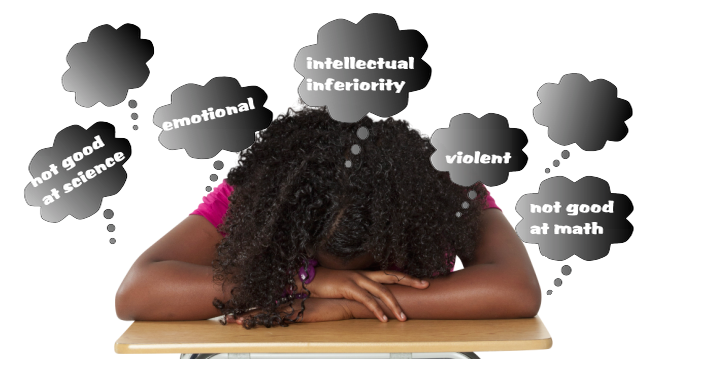Profiles in Mentoring: A Conversation with Dr. Alex Werntz about “that magic key ingredient” of mentoring and paraprofessional service delivery
Interviewed by Jean Rhodes
Alexandra Werntz is a postdoctoral researcher with Dr. Jean Rhodes at the Center for Evidence-based Mentoring and with Dr. Bethany Teachman at the University of Virginia. She received her Ph.D. in clinical psychology from the University of Virginia in 2020, specializing in supportive accountability for technology-delivered interventions. Her dissertation focused on how individuals with mental health challenges and their loved ones can be motivated to seek treatments that work. She is excited to work with the MentorHub team to improve access to mental health, wellness, and education apps that work among youth who may not otherwise have access to treatment and academic resources.
Chronicle: You have been trained as a clinical psychologist working mostly with technology-delivered interventions and implicit bias. What drew you to the world of youth mentoring and paraprofessional service delivery?
Alex Werntz: That’s a great question! I think what is particularly exciting for me is figuring out how we can expand access to clinical services. And I think one of the ways by which we can help youth get the help that they need is by expanding the number of supportive adults, who can actually help youth learn those skills. And what I mean by that is not taking clinicians out of the picture, but instead figuring out for those youth, who might not even need a clinician or a Ph.D. level or a Psy.D. level therapist. Right? How can we help supportive adults in their lives teach them about mental health and some of the academic skills that they might find helpful or what they might need at the moment? What drew me specifically to mentoring was that I was really inspired by Jean’s work (and these mentoring fields) and have really excited after reading her new book, and really thinking about how we can help youth mentors learn some of these clinical and mental health skills. And these mentors can provide this structured support for mentees. And that doesn’t replace the fun that they can have. It doesn’t mean that they can play basketball or get to know each other on a personal level, but instead, we’re infusing some of the skills in the relationship.
Chronicle: Traditionally, mentoring has really have been about the relationship. Are you at all concerned to start taking this more clinical approach (or having gulfs and assignments) that you will undermine the relationship?
Alex Werntz: Absolutely not. I think what is exciting is that this gives some of these mentoring relationships direction. It gives them something that they can focus on in these meetings, but that doesn’t mean that they can’t build that personal relationship and that personal relationship will likely be very influential and the youth actually picking up and using these skills. So, instead, I think building up that relationship is actually an added bonus to the youth that are participating in these programs.
Chronicle: What do you see as the realm of technology in all of this?
Alex Werntz: What I am particularly excited about is this age that we are living in; with this huge number of technology-delivered interventions that we know that if you use some of these mental health apps consistently that you can actually learn some of these skills that will help you feel better. But, as most of us probably are guilty of, we download an app, we use it once, and never open it back up again because we either forget about it or it’s not super important at the moment. So, really, how can we have someone in our life who can remind us to use those skills or to learn those skills that will be helpful? What is really cool is that if a youth in a mentoring program needs a little bit of help with anxiety – maybe they’re a little anxious and their mentor doesn’t quite understand all of the ways in which they can help their youth decrease their feelings and anxiety (or tolerate their feelings and anxieties) – perhaps this youth can actually learn those skills from an app that provides those skills in a way that sticks to a core curriculum. And then their mentor can support the use of those skills
Chronicle: Let’s dig a little deeper. What kinds of skills could a young person learn from an app?
Alex Werntz: That’s great. One of the apps that I’m working on is called Mind Trails and Mind Trails is an intervention for adults with anxiety and it helps adults learn flexible thinking. Relatively straightforward, but what we are doing right now is translating that to a youth version. We are focusing on your youth from diverse backgrounds. And, so, what we are doing is helping youth in this program learn flexible thinking in academic situations and situations at home that are anxiety-provoking or challenging. They are learning, you know, “Hey, whenever I’m learning, my anxious brain thinks that this scary situation is terrible, maybe – just maybe – sometimes these situations aren’t going to be so terrible. Maybe they will turn out well”. So, the apps help with flexible thinking and other skills. This is just an example.
Chronicle: And where does the mentor fit in? The child learns to kind of step back and not just go immediately to the most rigid way of thinking about anxiety. But, how does the mentor help with that?
Alex Werntz: Yep. So, the mentor, in my mind, is almost that magic key ingredient where the youth takes those skills from the app and then translate it into their everyday life.
Chronicle: You have been doing some work with the psychologist, John Weisz, at Harvard University. Can you describe some of that work? And how it fits in with your vision about the psychotherapy model?
Alex Werntz: Absolutely! What we are working on is a really cool project where we are actually teaching mentors how to provide – what we call – supervised practice. Essentially it’s the same thing as what I’ve been talking about, but supervised practice of these clinical skills that kids are learning from their therapist and then them being paired with a big from Big Brothers Big Sisters, and the big then helps them learn these clinical skills in their everyday life through the power of their mentoring relationship.
Chronicle: One of the worries that some of these mentors might have is that they are not clinicians – they haven’t been trained. What if things get worse? It might be too much to handle – taking on youth anxiety or youth depression or other disorders. What would be your answer to them?
Alex Werntz: I think it’s a really important question and the last thing that we want is for youth to either get worse or to not be connected to services when they actually need them, but I think what this actually does is expand services and puts another caring adult with that eye on some of the mental health pieces in that context with the kid. So, that, you know, the mentor – if they see an elevation in symptoms or if they see a problem that’s growing – maybe then, the adult can actually be helpful for escalating services. But, in many cases, where the problems are increasing, the mentor doesn’t have to be a clinician. They can be that other caring adult who’s friendly, who’s warm, who’s welcoming, and just having that conversation about, like, “Hey. It sounds like you’re very sad today. How can I help you? How can I help you use those skills that you learned in therapy, today, at the moment, right now?”
Chronicle: What do you see as some of the key issues that researchers and mentor practitioners should think about, moving forward? So, what are some of the research topics that you would like to see explored in this area? And what are some of the implications for the front-line staff and the mentoring program?
Alex Werntz: That’s great. I think one of the pieces that I would be really excited to see and work in is how we can recruit mentors – so the people who actually want to help youth, right? – how can we recruit mentors who are interested in just learning a bit more about youth. And, so, that might include youth mental health, but just learning a bit more about those skills and actually applying them at the moment so that mentors don’t come in with the expectation that it’s just going to be fun.
Chronicle: Yes! And that applies with maybe recruiting from psychology departments or from, maybe, places of worship, where people might be oriented to helping out in that way.
Alex Werntz: Absolutely! Or, maybe think about retirees who might have an invested interest in – you know – giving back to their community. Or thinking about individuals from marginalized or underrepresented backgrounds who might be very interested in helping youth from their own background and wanting to give back to their community.
Chronicle: That makes sense. Finally, implications for front-line workers (or front-line staff) in mentoring programs?
Alex Werntz: I think this could really change their job in that, right? It might mean more training on the front end for their mentors, but I don’t see that as a bad thing because then that actually gives a little bit more structure to the relationship. And, so then, for the staff, they might just facilitate some of that structure, which again doesn’t away from the power of the relationship between the mentor and the mentee.
Find Alex Werntz on ResearchGate.
Website: https://virginiafamilytherapy.com/alexandra-werntz-ph-d/
MentorHub: https://mentorhubapp.com/team/
Twitter handle: @alexwerntz










